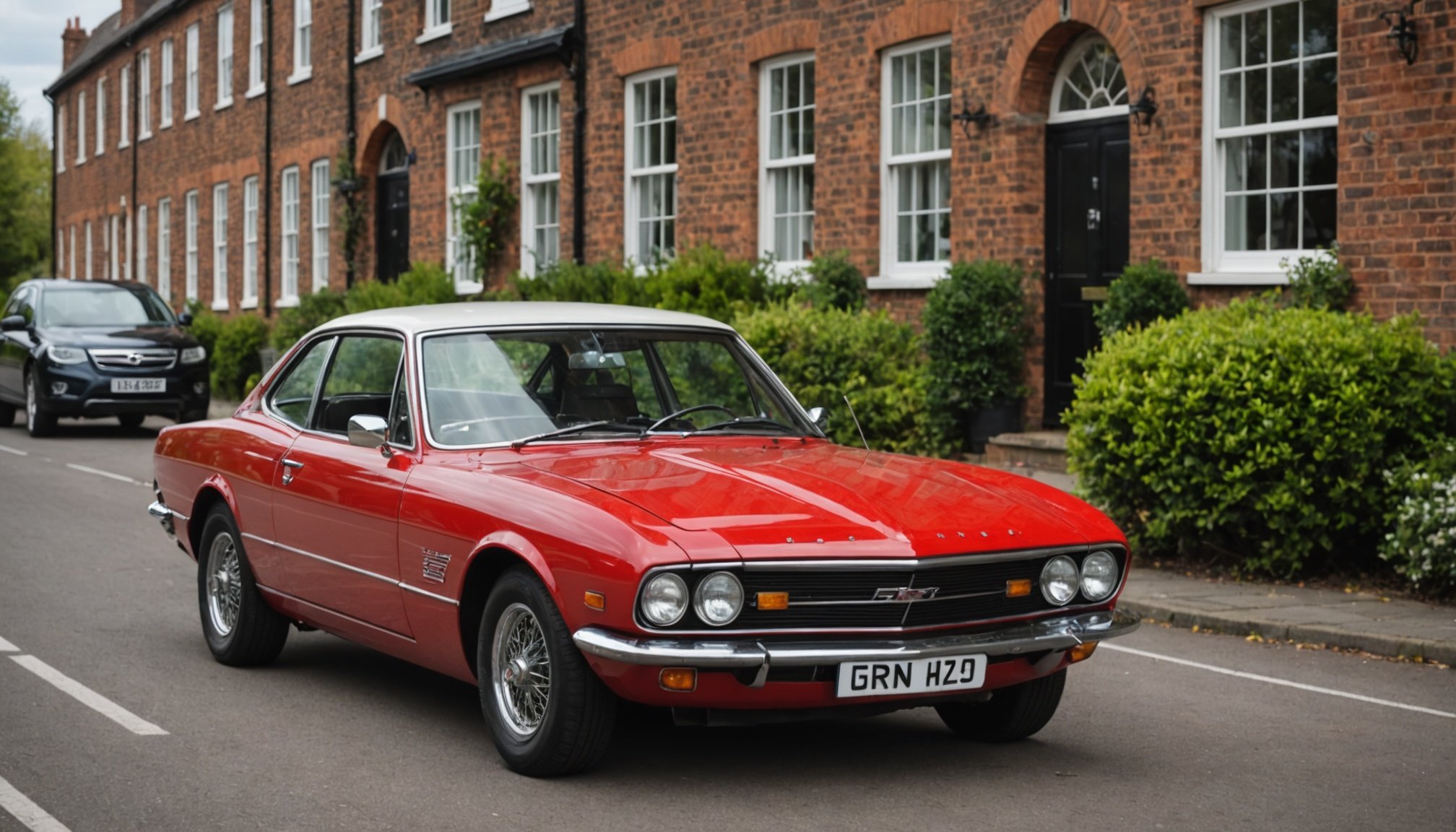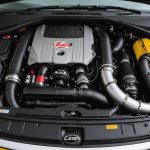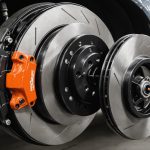Legal Requirements for Hybrid Conversion
In the UK, transitioning a classic car into a hybrid involves adhering to specific legal regulations. These regulations are designed to ensure vehicle modifications, like hybrid conversions, meet safety and environmental standards. Modifying a classic car often requires multiple certifications and inspections to guarantee compliance with national laws.
One must first understand that different rules might apply depending on the vehicle type. For instance, there are variations in the legal protocols if a car is used for personal travel compared to if it is for commercial purposes. Obtaining the necessary certifications is crucial, as it involves thorough checks of the new technology to ensure integration does not compromise safety.
Also read : Key navigation system attributes every uk driver must have for an ideal city commute
Once the conversion is complete, the vehicle may need an inspection by the local authority to validate the changes. This inspection typically focuses on the hybrid system’s operation and its contribution to reduced emissions and safety. Not adhering to these inspections and certifications can lead to legal repercussions, such as fines or refusal for vehicle registration renewal. Thus, it’s advisable to stay informed about these regulations and to work closely with legal experts, ensuring the transition is smooth and compliant.
Costs Involved in Transitioning to Hybrid
When considering a hybrid conversion in the UK, understanding the associated costs is crucial. The hybrid conversion costs primarily comprise parts and labour. Essential components include batteries and electric motors, which can vary widely in price depending on specifications and technology options. Labour costs entail the time and expertise required to install and integrate these parts into the existing systems of the classic car.
Topic to read : Demystifying car insurance in the uk: key differences between electric and petrol vehicles
Potential financial incentives might alleviate some expenses. The UK government occasionally offers grants to encourage eco-friendly modifications, reducing the financial burden for car owners. Checking for any available grants before embarking on the conversion process is advisable.
Long-term savings also play a significant role in the financial decision. Hybrid systems enhance fuel efficiency, which means less expenditure on fuel over time. Moreover, hybrid vehicles often benefit from reduced maintenance needs due to fewer moving parts compared to traditional engines. When evaluating the cost, consider both the upfront expenses and the potential for ongoing savings. A careful balance of these elements will guide classic car owners towards a financially sound conversion decision. It’s essential to weigh these costs and benefits carefully before proceeding with the conversion.
Recommended Technologies for Hybrid Systems
In hybrid conversion, choosing the right hybrid technology options for classic cars is essential to ensure optimal performance and compatibility.
Types of Hybrid Systems
There are primarily two types of hybrid systems: parallel and series. A parallel hybrid combines both internal combustion and electric power to drive the wheels simultaneously, offering seamless integration. Conversely, a series hybrid relies solely on the electric motor to drive the vehicle, with the engine operating as a generator. Each system has distinct benefits, making it crucial for owners to select based on their driving needs and restoration goals.
Battery Options
Battery capacity and types play a significant role in hybrid conversions. Lithium-ion batteries are popular due to their high energy density and efficiency, making them ideal for extended driving ranges. Nickel-metal hydride batteries are another option, offering longevity and robustness, although generally with a lower energy density.
Electric Motor Choices
Selecting the right electric motors is essential for maintaining the performance of classic cars. Motors need to be compatible with the car’s weight, size, and power requirements. Brushless DC motors are known for their efficiency and durability, while Permanent Magnet motors offer compactness and high performance. Each motor type provides unique advantages, catering to different conversion goals.
Step-by-Step Conversion Process
Converting a classic car into a hybrid in the UK requires meticulous planning and execution to ensure optimal results. The process begins with an initial assessment of the vehicle to evaluate its suitability for a hybrid conversion. This involves checking the car’s structural integrity, compatibility of current systems, and potential areas of improvement.
The conversion unfolds in key phases:
-
Sourcing Parts: Acquiring high-quality components like batteries and electric motors specific to the car model is essential. Availability and compatibility can vary, thus careful selection is crucial.
-
Installation: This phase demands precision. The integration of the hybrid system should preserve the original features and charm of the classic car. Proper alignment and connections help prevent future issues and enhance performance.
-
Testing: Comprehensive testing follows installation to ensure all systems operate seamlessly and safely. This stage involves assessing energy efficiency, verifying emission reductions, and testing drivability.
Professional assistance is often advisable due to the conversion’s complexity. Engaging with experts or community resources can provide invaluable guidance and support. Their insights can lead to a smoother transition, maintaining the classic car’s essence while harnessing modern hybrid technology.
Benefits of Hybrid Systems
Transitioning classic cars to hybrid systems offers substantial benefits, especially in reducing their environmental impact. Hybrid technology significantly cuts down on emissions, dramatically lowering the carbon footprint. This change supports broader efforts for sustainability, as hybrids produce fewer greenhouse gases compared to traditional combustion engines.
Another major advantage is the enhancement of fuel efficiency. Hybrid vehicles typically consume less fuel, offering long-term cost savings. With fluctuating fuel prices, the efficient use of resources becomes a financial boon for owners. This increased efficiency doesn’t just spare the wallet but also aligns with global initiatives to conserve energy.
Moreover, owners report an improved driving experience. Classic car enthusiasts can enjoy the best of both worlds—a nod to nostalgia combined with modern performance benefits. Hybrid technology provides smoother rides with often increased torque and acceleration, which many find satisfying.
Lastly, the preservation of classic cars through hybrid conversion ensures their legacy endures for future generations. It’s a way to respect the past while adapting to present and future environmental and technological demands. Embracing this technology showcases a commitment to sustainability without sacrificing the soul of cherished vintage automobiles.
Insurance Considerations for Hybrid Conversions
Transitioning your classic car to a hybrid in the UK involves notifying your insurance provider about the modifications. It’s crucial, as undisclosed alterations can affect your coverage and claims. Upon notification, your insurer might reassess your policy, potentially leading to changes in premiums. Hybrid conversions can make your car more valuable or safer, possibly lowering premiums. However, if there’s an increase in perceived risk, costs might rise.
Finding a specialized insurer familiar with classic hybrids can be beneficial. Some companies specifically cater to modified classic cars, offering tailored policies that account for hybrid systems. These insurers often understand the unique needs of hybrid classic cars, ensuring comprehensive coverage.
Additionally, the extent of hybrid modifications impacts insurance. Minor tweaks might lead to minimal changes, while extensive overhauls could require policy reviews to cover the new components properly. Consult with your insurer, provide detailed modification documentation, and explore options with various insurers. This ensures your cherished hybrid conversion is adequately insured and financially protected against unforeseen events.
Insurance Considerations for Hybrid Conversions
Transitioning your classic car to a hybrid in the UK necessitates notifying your insurance provider about the modifications. Failure to disclose these alterations can lead to coverage issues. Upon being informed, insurers typically reassess your policy, possibly altering your premiums. Hybrid conversions can sometimes lower premiums, as they might enhance safety and increase the car’s value. However, if perceived risks rise, costs could increase too.
Finding a specialized insurer experienced with classic hybrids can be advantageous. Such companies offer tailored policies catering specifically to the hybrid systems in modified classic cars. They understand the unique requirements and potential enhancements involved with these vehicles, often providing more comprehensive coverage.
The extent of your hybrid modifications can significantly impact your insurance. Minor changes could lead to minimal adjustments, whereas more extensive overhauls might necessitate a thorough policy review to adequately cover the new components. It’s crucial to consult your insurer, provide detailed modification documentation, and explore various insurers’ options. Doing so ensures your hybrid conversion is well-insured, effectively protecting your investment against unforeseen circumstances. Communicating changes accurately with your insurer is key to maintaining suitable and comprehensive coverage.
Environmental Impact of Hybrid Vehicles
Transitioning classic cars to hybrids can significantly enhance their sustainability. One notable change is the drastic reduction in carbon footprint. Hybrid technology combines traditional engines with electric motors, resulting in lower emissions. This modification is especially beneficial given classic cars’ historically higher emission rates.
Before conversion, classic vehicles emit a substantial amount of greenhouse gases, largely due to less efficient older engines. After incorporating hybrid systems, these cars witness a meaningful drop in emissions. Such reductions align with broader environmental goals, addressing air quality concerns and combating climate change.
Preserving classic cars through hybrid conversions is not just about emission cuts; it ensures these historical vehicles’ legacy endures. By adapting to modern environmental standards, classic cars continue to be appreciated by future generations without contributing to pollution.
Ultimately, embracing hybrid technology in classic cars is a step towards marrying nostalgia with sustainability. The modern twist allows owners to enjoy their vintage vehicles responsibly, highlighting hybrids’ vital role in protecting our environment while preserving automotive history.











